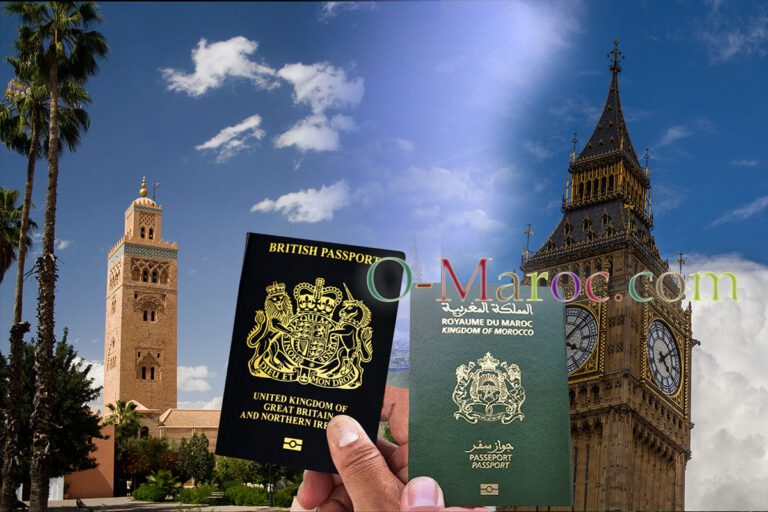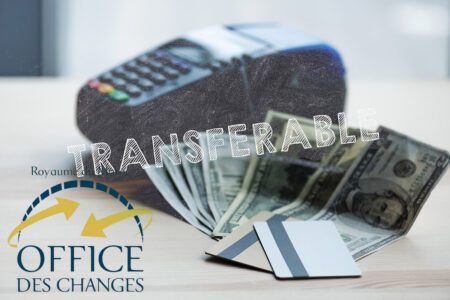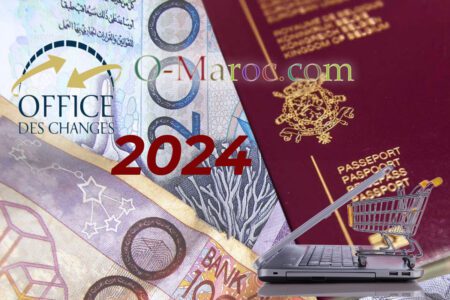This is a question that often comes up in the comments: how to obtain Moroccan citizenship?
It is theoretically possible to become Moroccan in a number of cases, in practice almost impossible, except for children of Moroccans. And in this case, it is more a recognition of a de facto citizenship than a naturalization.
In other words, now, you don’t become Moroccan, you are born Moroccan, but sometimes the authorities don’t know that and you can inform them.
Now, concretely, beyond the sentimental, emotional or patriotic reasons that can push one to ask for this citizenship – which are perfectly valid – from a practical point of view, is it a good idea?
What are the advantages and disadvantages?
Taking Moroccan citizenship is an irreversible choice
Unlike many countries where you can more or less easily renounce your citizenship, such as the United States on a simple declaration, or France and most European countries, where the process is a little more complicated, you cannot renounce your Moroccan citizenship. The only way to lose it is by royal decree.
In other words, it has to happen once a century!
Taking Moroccan citizenship: the disadvantages
You may lose your other citizenship
Many countries do not recognise dual citizenship. Some countries even go so far as to prohibit it. In this case, if you voluntarily apply for another citizenship, you automatically lose your first one. This is particularly the case in the United Arab Emirates and China. This was the case in Germany, Belgium, among other European countries, until the end of 2010. Since then, these countries have softened their stance, but there is nothing to prevent them from going backwards.
Moreover, in a darker mood, it is forbidden to deprive you of your citizenship if this turns you into a stateless person, i.e. if you have no other citizenship. So this protection disappears for dual nationals. As the granddaughter of someone who was stripped of his citizenship during the war, I must admit that this ‘theoretical’ subject remains sensitive.
And this ‘theory’ is now much more concrete, since France, amidst other European countries, has started to wave the threat of the loss of citizenship.
You are only Moroccan in Morocco
It can never be said enough, on many points, foreigners benefit from flexibilities that Moroccans do not have. And in case of dual citizenship in Morocco, only the Moroccan passport is taken into account.
Practically, today, this is the biggest drawback, which will have consequences on the following points
Foreign currency exchange control
As a matter of principle, Moroccans are not allowed to hold assets abroad (there may be derogations, arrangements, but this is the basic principle). They must repatriate them to Morocco and, if they are granted a derogation, they must reintegrate the income from these assets into their taxes in Morocco.
Non-Moroccans resident in Morocco are entitled to have assets abroad, and must declare the income in Morocco, like Moroccans.
Non-Moroccans are entitled to have accounts in convertible dirhams and to pay their income into them, when they can prove that they have paid tax on that income. They can also receive amounts in foreign currencies.
Moroccans are limited, in any case, to the amounts of their tourist endowment and their e-card. These can be changed very easily, up or down.
Social protection
Dual nationals are excluded from the benefit of the Social Security Convention between their own country and Morocco which can be a disaster: for example, if a Franco-Moroccan needs to be treated for a serious illness in Morocco, he/she will have to make do with the Moroccan health system and will not be covered by the Social Security in France if he/she goes to be treated there, he/she will have to change residence first.
Of course, this is important only if your country has signed such a convention with Morocco.
Cost of foreign schools
In general, foreign schools are cheaper for children of foreigners. Some, such as the Belgian school, impose the (high) prices for Moroccans on the children of bi-nationals.
Hotels, alcohol, etc.
Most of the restrictive laws on the sale of alcohol, room sharing for unmarried couples do not mention religion as a criterion, but citizenship. So they do not apply to foreign Muslims.
Here is ….
You no longer have access to certain jobs/careers in your other country
Police, army … are careers that are generally forbidden to bi-nationals. And this is a bit normal, isn’t it?
Moroccan citizenship has some advantages
Owning agricultural land
This is honestly THE big advantage of Moroccan citizenship. As a foreigner you can rent agricultural land, even with 99-year leases, but you are not allowed to own it, even by inheritance.
I know people who have applied for Moroccan citizenship just for that…
Access to regulated professions
In addition to careers in the police and the army, a certain number of professional orders are reserved, de facto, for Moroccans: adouls, architects, etc. Even if you get your foreign qualifications recognised, you would not be able to set up on your own as an architect and would have to work in a practice.
The risk of extradition
As we can see with the Stéphane Raoult case, there is no bilateral convention between France and Morocco prohibiting the extradition of French citizens to third countries.
On the other hand, Morocco will always refuse to extradite its nationals.
The question is: is this really an advantage? In case of problems, is it better to be tried and imprisoned in one’s own country or in Morocco?
What doesn’t really change
Consular protection
There are many myths about consular protection.
In Morocco, being foreigner does not exempt you from obeying the law, paying your fines, going to prison if the procedure requires it or if you are condemned to it. Morocco is recognised as a state governed by the rule of law, which means that in the event of a dispute with the Moroccan authorities, the consulate will let it happen.
On the other hand, in the event of a revolution and violence in Morocco, the consulate would still recognise your original passport and try to protect you, if you could enter the consular area.
This is a bit like what happened with the evacuations in Afghanistan, where the few bi-nationals were not blocked, unlike the Afghans.
For me, this is a secondary point, because the real risk seems extremely low. And above all, if there were any semblance of probability, it would be time to pack your bags before taking refuge behind the gates of a consulate!
Divorce abroad
Whether you are Moroccan, foreigner or have a dual citizenship makes little difference. If you are resident abroad, that is where you must divorce and then register your divorce with the Moroccan registry office, via an exequatur procedure, and vice versa.
Conversely, a foreigner living in Morocco will divorce before a Moroccan court exactly like a Moroccan. With the same laws. And the same handicap if he/she is not Muslim.
Inheritance abroad
Similarly, the laws governing inheritance are complex, but will be applied in the same way regardless of your citizenship (religion takes precedence). And it is local law that will be applied to assets held abroad.
Assets you will be have to repatriate to Morocco, if you are Moroccan.
 A typo or syntax error? You can select the text and hit Ctrl+Enter to send us a message. Thank you! If this post interested you, maybe you can also leave a comment. We'd love to exchange with you !
A typo or syntax error? You can select the text and hit Ctrl+Enter to send us a message. Thank you! If this post interested you, maybe you can also leave a comment. We'd love to exchange with you !





2 Comments
Regarding your comment: “I know people who have applied for Moroccan citizenship just for” being able to own agricultural land. Were they successful?
Yes they were. Because they were in a situation where it was possible for them to get this citizenship